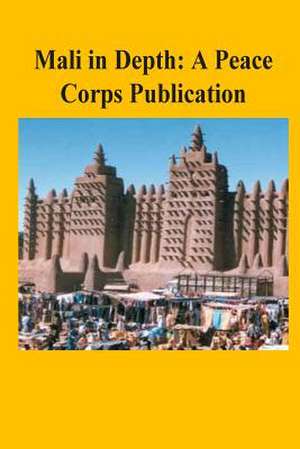Mali in Depth
Autor Peace Corpsen Limba Engleză Paperback
Preț: 82.32 lei
Nou
Puncte Express: 123
Preț estimativ în valută:
15.75€ • 16.27$ • 13.11£
15.75€ • 16.27$ • 13.11£
Carte disponibilă
Livrare economică 05-19 martie
Preluare comenzi: 021 569.72.76
Specificații
ISBN-13: 9781502412720
ISBN-10: 1502412721
Pagini: 82
Dimensiuni: 152 x 229 x 4 mm
Greutate: 0.12 kg
Editura: CREATESPACE
ISBN-10: 1502412721
Pagini: 82
Dimensiuni: 152 x 229 x 4 mm
Greutate: 0.12 kg
Editura: CREATESPACE
